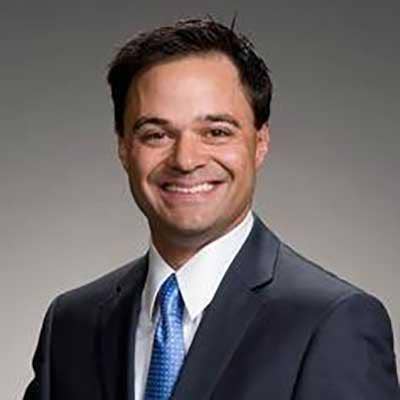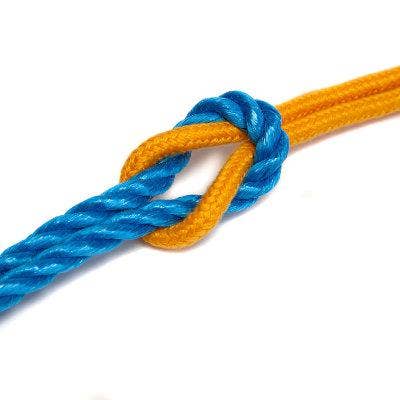Peak 10 Closed Its $1.67B ViaWest Acquisition: Here's How The Deal Is Benefiting Partners

Peak 10 + ViaWest
Three months after Charlotte, N.C.-based cloud service provider Peak 10 announced plans to acquired fellow cloud service provider ViaWest, the deal is closed, and integration is well underway.
The new company is being called Peak 10 + ViaWest, and according to Peak 10's channel chief Dave Sroka, the post-acquisition period marks the most fun he's ever had in his career.
Sroka recently sat down with CRN to talk about the state of the crowded cloud market and shared details on how the companies are coming together to form a channel-friendly, global co-location and hybrid IT services provider. The following are excerpts from the conversation.
Read about how partners initially reacted to the Peak 10/ViaWest deal here.

With the acquisition behind you, how have the companies been working to come together?
Within about 10 weeks of notifying the public, we closed the ViaWest deal, so the amount of work in making this merger move forward is like nothing I've ever seen. Upon going live, executives did a tour in all major markets within the combined company, and they rolled out with a plan on how we work together. We were met with a tremendous amount of enthusiasm on what this means for not only the combined company, but for the industry in general.
Behind the scenes, there's still a million things to do, but things are progressing, and we are moving forward as one company. We have announced our leadership teams with Chris Downie is leading combined company, so going forward it's really exciting -- it’s a great time for us.

How is the combination of the two partner programs coming along?
For Peak 10, partners are a huge piece of our business. If you look at both companies, it was eerie how similar they were both from a partner commitment and overall percentage of sales. For this year, our mantra has been: We don’t want to break anything that is working. We want to continue to allow partners to engage with us as they have for years, but the really exciting thing for them is the ability to sell the other company's portfolio.
We had a very small overlap between our legacy partners and [Greenwood Village, Colo.-based] ViaWest legacy partners, so there has been excitement from our partners who have said, "Now I can sell data center space in Las Vegas -- I didn’t have a West Coast option for my East coast partners before." And it goes the other way too -- ViaWest partners have been excited to sell our products, too.

What has been the biggest challenge during the integration process?
Consolidation – it is no small task. As we go down that path, we start to see more things that need consolidation, like the process of how we register a lead, what the portal looks like, what the commission statement to partners that we send out looks like, the order of columns on the invoice, etc. We are committed to not changing anything until we believe we have something that is better going forward for combined company. We are spending a tremendous amount of time on the back office from a transaction standpoint – it just has to be right. If we can't process orders from our partners, then the program itself will ultimately not be successful.

In the crowded cloud market, what differentiates Peak 10 + ViaWest's cloud services?
A lot of hyperscale players [like AWS] provide part of the solution, but the majority of customers are taking hybrid [approaches], and we are very uniquely positioned to serve hybrid. We offer the cloud application layer, private cloud, [Disaster Recovery as a Service] DRaaS, and we have the physical infrastructure.
Legacy ViaWest was really big into security and compliance, and ViaWest has done a really good job of positioning themselves as a company that can help with security. Peak 10 is about disaster recovery. This hurricane season has been horrible, and people are wondering if their data is really protected and set up correctly. We can help with all of that. Our partners can walk in and ask what clients are doing around security for cloud apps and disaster recovery. We are doing is training sessions with interested partners through masters and allowing them to learn how to start conversations around these topics.

How do partners get started selling cloud if they aren't already?
Everyone is looking at [cloud] and knows they need to do something, but many don’t know where to start. As separate companies, [Peak 10 and ViaWest] had separate messaging, but it was actually very similar. My first suggestion is, if you're not really connected to master agent with cloud education services, you're doing yourself a disservice. Those players have a lot of technical experts and a lot of different product sets they can use to help partners come on board, especially for many of the smaller partners that don’t have their own technical resources.
Hybrid is what everyone is talking about now, and partners play a huge role in helping their customer figuring out how that works. If you look at the top five cloud challenges -- managing multiple cloud services is one of them -- partners can play a fantastic role in coming in as an expert. Partners can come in and talk about disaster recovery, storage, and UCaaS, and the partner can be dangerous enough in all of it to give customers a level of comfort to guide them through it.

Is Peak 10 + ViaWest actively recruiting new partners?
There are so many people now looking at us because we are close to half a billion company with 20 markets of coverage and they want to be a part of it. Yes! We want to help partners get a little uncomfortable by having cloud conversations because your customers are having those conversations with other people -- like your competitors. The more we can do that, the better.
Combined, Peak 10 and ViaWest is a unique company with a big footprint and huge suite of products. If a partner brings us an opportunity, we are going to have an answer for almost all of them. It's very rare we run into a cloud opportunity that we can't help with. It's been really cool to see all of this come together.